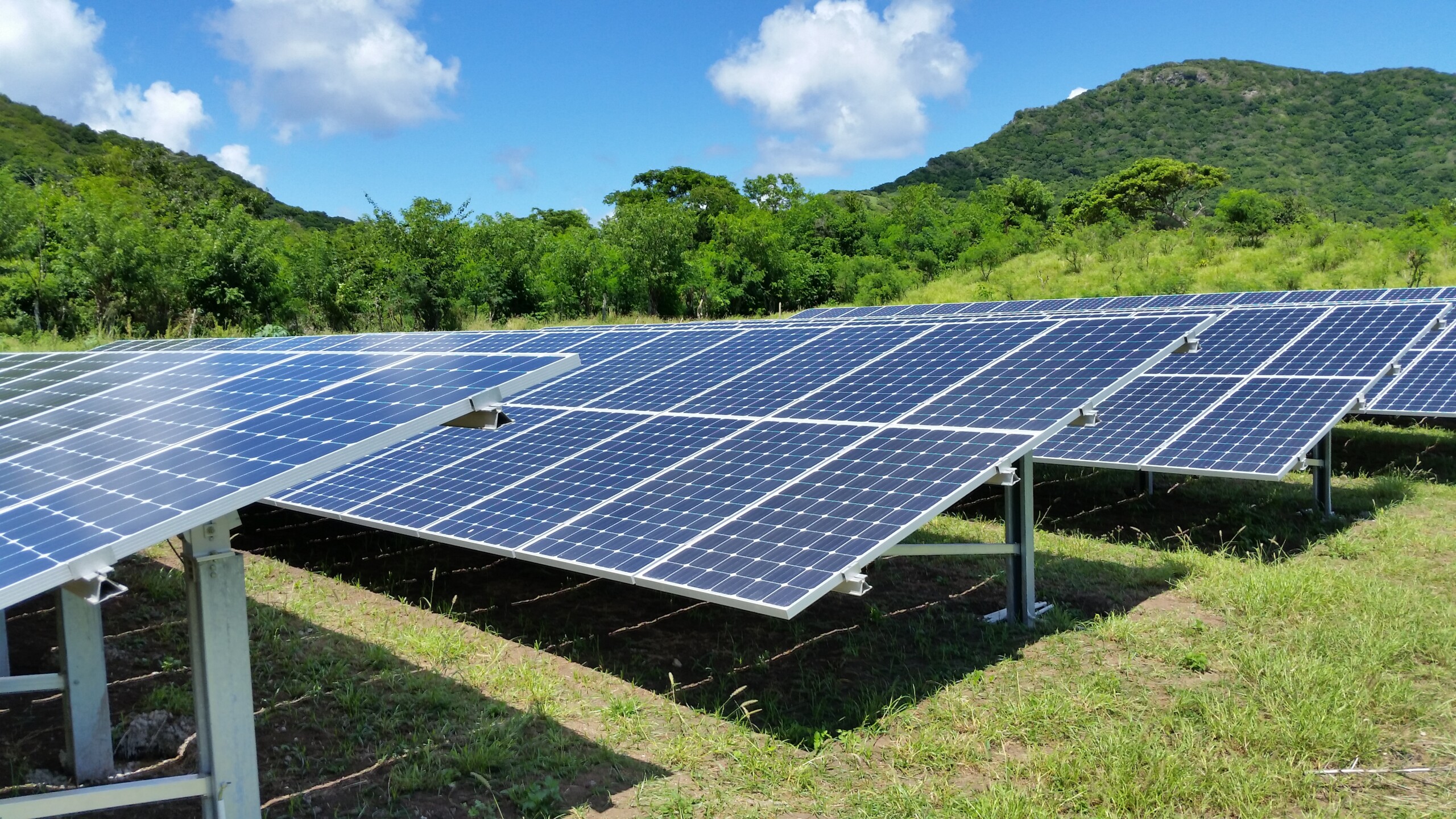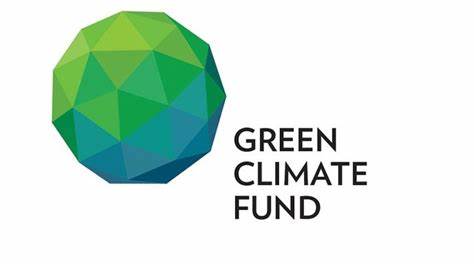
Challenges and Opportunities
Challenges:
Dependence on Fossil Fuels:
Grenada heavily relies on imported fossil fuels for its energy needs, making the country vulnerable to global price fluctuations and supply chain disruptions. This reliance also contributes significantly to carbon emissions, exacerbating the island's environmental challenges.
Vulnerability to Climate Impacts:
Being a small island state, Grenada is highly vulnerable to climate-related risks such as hurricanes, rising sea levels, and other extreme weather events. These can severely disrupt energy infrastructure, including the grid, generation plants, and fuel storage facilities, creating power outages and jeopardizing energy security.
Infrastructure Limitations:
Grenada’s energy infrastructure is outdated and lacks the resilience needed to cope with increasing climate-related disruptions. Investment is required to upgrade the grid and incorporate renewable energy systems to meet future demand and improve reliability.
Financial and Technological Constraints:
The transition to renewable energy and climate-resilient infrastructure requires substantial investment. However, Grenada faces financial constraints and limited access to the latest renewable energy technologies. The high cost of renewable energy systems, coupled with limited technical expertise, slows the adoption of cleaner energy solutions.
Energy Access:
Ensuring reliable and affordable energy access for all citizens remains a challenge, especially with the potential for increased energy costs associated with climate-proofing and modernizing the energy sector. Rural areas, in particular, may face issues related to connectivity and energy affordability.
Opportunities:
Transition to Renewable Energy:
Grenada has substantial potential for renewable energy, particularly from solar, wind, and geothermal sources. Investing in renewable energy can reduce the island’s dependence on fossil fuels, enhance energy security, and reduce greenhouse gas emissions. Geothermal energy exploration, especially, could provide a steady and sustainable power source, positioning Grenada as a leader in clean energy in the region.
Energy Efficiency Initiatives:
Implementing energy efficiency measures, such as retrofitting buildings, improving energy standards, and promoting the use of energy-efficient appliances, presents a significant opportunity to reduce energy demand and cut costs. Programs targeting public awareness and incentivizing the private sector to adopt energy-saving technologies can yield long-term benefits.
Resilience Building:
As part of its climate adaptation efforts, Grenada can invest in building climate-resilient energy infrastructure, including burying power lines, developing microgrids, and enhancing storage capacities. Incorporating smart grids and advanced monitoring systems could improve the flexibility and resilience of the energy system against climate impacts.
International Funding and Partnerships:
Grenada has access to various international funds and climate finance mechanisms that can help accelerate the development of its renewable energy sector. The Green Climate Fund (GCF) and other global initiatives focused on climate adaptation provide funding opportunities for projects that align with Grenada’s Nationally Determined Contributions (NDCs) under the Paris Agreement. Partnerships with regional organizations and private investors can also play a crucial role in driving energy transformation.
Policy Advancements:
Grenada’s government has made commitments to increase renewable energy’s share in the national energy mix. The Renewable Energy and Energy Efficiency Act and the country’s National Sustainable Energy Plan lay the groundwork for future developments in the sector. These policies, coupled with global commitments to reducing emissions, open the door for legislative and regulatory reforms that incentivize clean energy investment and innovation.
In summary, while Grenada faces substantial challenges in transforming its energy sector to withstand the impacts of climate change, there are numerous opportunities to capitalize on renewable energy potential, improve energy efficiency, and enhance resilience. With strategic planning, international collaboration, and investment in green technology, Grenada can achieve a more sustainable and climate-resilient energy future.
Baseline and Goals
Grenada’s energy sector is mainly reliable on the importation of traditional fossil fuels which account for over 98% of the national energy mix and comprise of diesel, gasoline, kerosene and liquefied petroleum gas. These imports mainly come from Venezuela and are used principally for electricity generation, cooking and transportation.
Since 2010, carbon dioxide emissions in Grenada have increased by 87% with electricity production contributing to an average of 48% of these emissions between 2010 and 2014. Since 2014, gross generation by GRENLEC, the sole provider of electricity, has steadily increased up to 222.7 gigawatt hours (GWh) in 2020.
Major Players in the Energy Sector
| Government Authority | Energy Division - Ministry with responsibility for Public Utilities & Energy Services Provided: price calculations of petroleum products, data monitoring on energy sector, liaison with national and regional organisations |
| Utility | Grenada Electricity Services Ltd. (GRENLEC) Sole provider of electricity in Grenada. Investor-owned by WRB Enterprises (50%), employees (4.5%), the Government of Grenada and the National Insurance Scheme (21%) and other investors (24.5%) |
| Regulator | Public Utilities Regulatory Commission (PURC) Established by the PURC Act No. 20 of 2016 with the electricity sector coming under its purview. |
Electricity/Energy Sector Overview
| Average Electricity Prices | For Domestic Customers: Fuel charge = $0.32 per kWh Non-fuel charge = $0.41 per unit |
| Total Installed Capacity | 52.1 MW |
| Peak Demand | 31.9 MW |
| Gross Electricity Generation | 222.7 GWh (mostly from diesel) |
| RE Share | Total RE Generation = 4.2 GWh RE Penetration 1.96% |
GRENLEC Annual Report 2020. Figures given are for the year 2020
Although the amount of Grenada’s greenhouse gas emissions is negligible compared global emissions, Grenada is committed to reduce its emission of greenhouse gases by 40% of 2010 levels by 2030 according to its Nationally Determined Contributions. Grenada’s National Energy Policy also outlines Grenada’s goal to increase the percentage of domestic energy usage derived from renewable energy sources and reduce the national rate of consumption while increasing economic growth.
Electricity/Energy Sector Overview
To achieve these goals, Grenada has already begun to open avenues to renewable energy and energy efficiency through the following:
- The Electricity Supply Act 19 of 2016 encourages the use of renewable energy in supplying electricity.
- Grenada has begun to access multilateral and bilateral support through regional and national energy projects.
- Various renewable energy projects funded by GRENLEC involving installation of solar panels at public and private facilities.
Policies and Plans
Policies relevant to the energy sector:
National Energy Policy of Grenada



